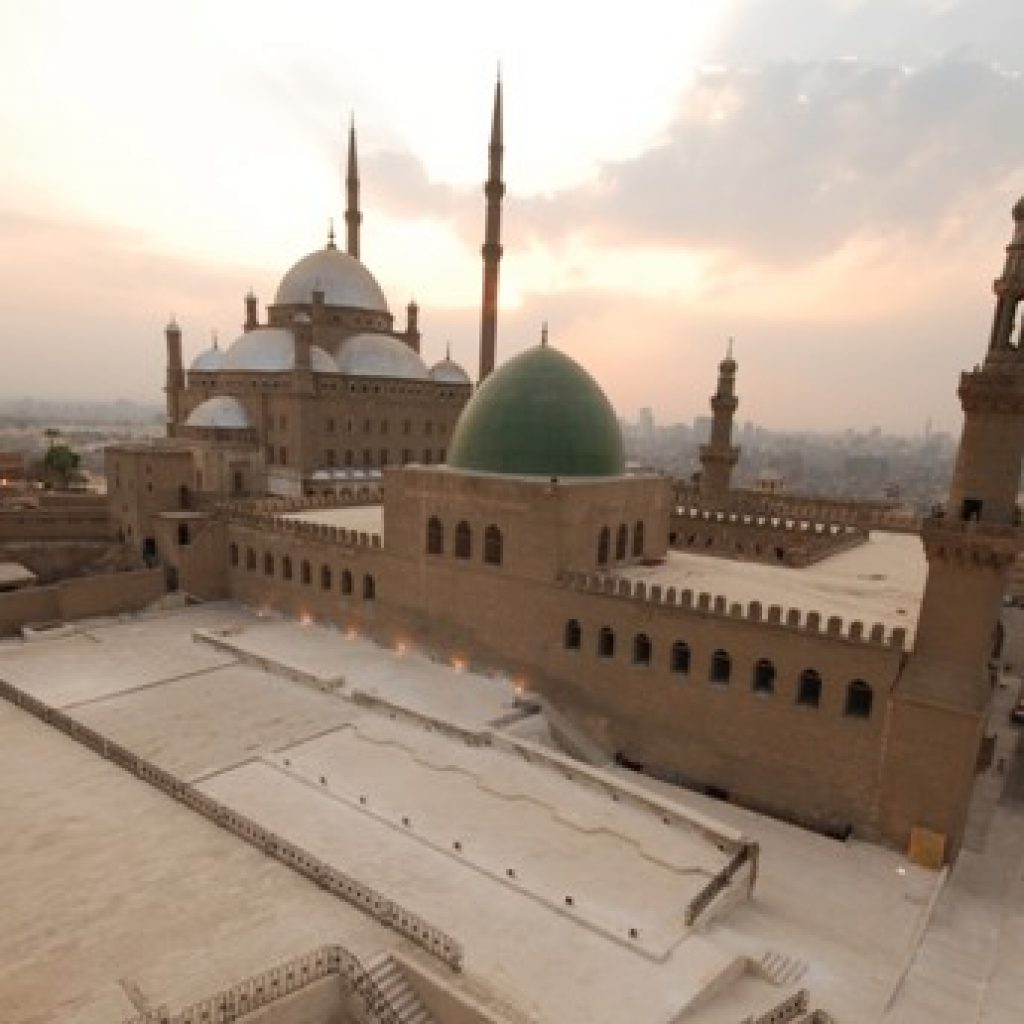
The Citadel of Cairo or Citadel of Saladin (Arabic: قلعة صلاح الدين, romanized: Qalaʿat Salāḥ ad-Dīn) is a medieval Islamic-era fortification in Cairo, Egypt, built by Salah ad-Din (Saladin) and further developed by subsequent Egyptian rulers. It was the seat of government in Egypt and the residence of its rulers for nearly 700 years from the 13th to the 19th centuries. Its location on a promontory of the Mokattam hills near the center of Cairo commands a strategic position overlooking the city and dominating its skyline. At the time of its construction, it was among the most impressive and ambitious military fortification projects of its time. It is now a preserved historic site, including mosques and museums.
In addition to the initial Ayyubid-era construction begun by Saladin in 1176, the Citadel underwent major development during the Mamluk Sultanate that followed, culminating with the construction projects of Sultan al-Nasir Muhammad in the 14th century. In the first half of the 19th century Muhammad Ali Pasha demolished many of the older buildings and built new palaces and monuments all across the site, giving it much of its present form.
The Citadel was built on a promontory beneath the Muqattam Hills, a setting that made it difficult to attack. The efficacy of the Citadel’s location is further demonstrated by the fact that it remained the heart of Egyptian government until the 19th century. During this long period, the layout and structure of the Citadel was repeatedly altered and adapted to suit the designs of new rulers and new regimes, which makes it difficult to reconstitute its original plan or even its plan in subsequent periods. There have been three major construction periods leading to the Citadel’s current form: 12th-century Ayyubid (starting with Saladin), 14th-century Mamluk (under al-Nasir Muhammad), and in the 19th century under Muhammad Ali.The Citadel stopped being the seat of government when Egypt’s ruler, Khedive Ismail, moved to his newly built Abdin Palace in the new downtown Cairo in 1874.




Comment (0)